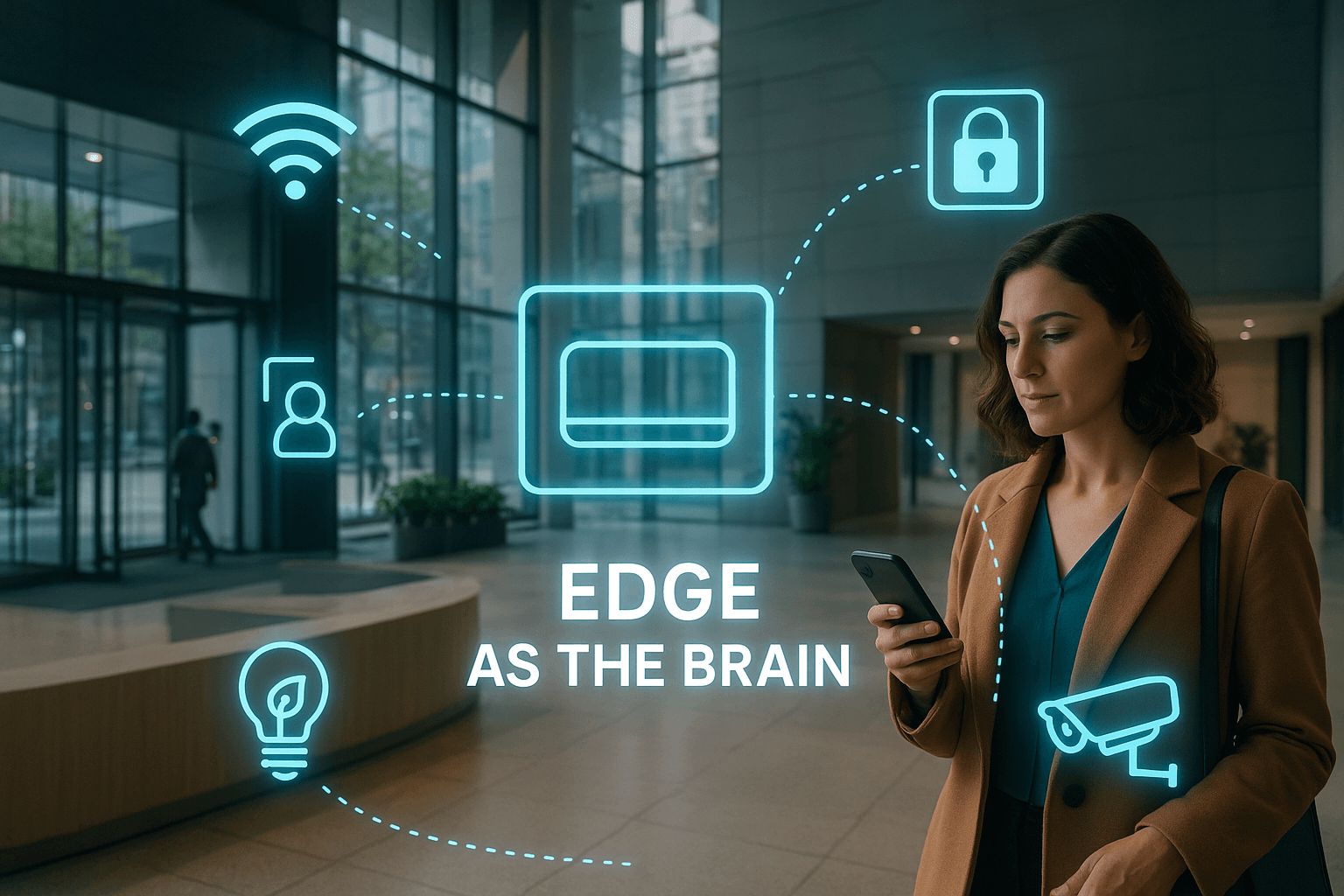
How to Implement Digital Solutions in Hotels
In the era of digital transformation, hotels are constantly seeking innovative ways to enhance the guest experience. At Shirikihub, we understand the importance of integrating digital solutions to meet the evolving needs of guests.
This blog post guides hoteliers through identifying guest needs, selecting the right digital technologies, and implementing them effectively. Our aim is to help hotels leverage digital advancements for improved guest satisfaction and operational efficiency.
Enhancing Guest Experience Through Digital Integration
To revolutionize the hotel guest experience in today’s digital age, understanding the journey of your guests from pre-booking to post-stay is paramount. The emphasis should be on identifying pain points within this journey and pinpointing opportunities where digital solutions can provide a substantial impact. This approach ensures that any technology implemented not only enhances operational efficiency but also directly improves guest satisfaction.
Start by meticulously mapping the journey of your guests. This involves breaking down each phase of their stay – from researching and booking to checking in, experiencing the hotel, and finally checking out. Each stage offers unique opportunities for digital integration that can make their stay more enjoyable and seamless.

Identifying pain points is a critical step. Common guest frustrations include cumbersome booking processes, long wait times at check-in, inadequate room features, and slow or inefficient service responses. By pinpointing these areas, hotels can strategically target their technology investments to address these issues head-on.
Furthermore, actively analyzing guest feedback and preferences is invaluable. In an era where data reigns supreme, leveraging information collected from post-stay surveys, online reviews, and direct feedback can uncover what guests truly value. Whether it’s the desire for digital room keys, faster Wi-Fi, or more personalized services, understanding these preferences allows for the tailoring of digital solutions that resonate with guests.
Practical steps include:
- Implementing an online booking system that’s robust and user-friendly to simplify the reservation process.
- Offering mobile check-in and check-out to bypass traditional reception lines.
- Equipping rooms with smart technology, allowing guests to control lighting, temperature, and entertainment systems via their smartphones.
- Utilizing chatbots on your website and messaging platforms to answer guest queries in real-time.
Remember, the goal of digital integration is not just to modernize operations but to create memorable experiences that encourage repeat visits and positive reviews. Investing in technology should always be guest-centric, aiming to meet and exceed the expectations of modern travelers.

For more in-depth insights on optimizing your digital strategy, considering reading about digital infrastructure optimization or exploring trends in sustainable technology. These resources can provide additional guidance on how to leverage technology for enhancing guest satisfaction while ensuring operational efficiency.
Selecting Digital Upgrades
After identifying the guest experience journey and pinpointing the areas for improvement, the next step is selecting the right digital technologies that align with your hotel’s specific needs. The hotel industry is vast, and technology offers a wide array of solutions to match. However, the art lies in choosing those that not only fit with your current operations but also adapt to future trends and demands.
Understand Your Hotel’s Needs
Before diving into the options, have a clear understanding of your hotel’s specific needs. Does your hotel cater to a tech-savvy clientele that would appreciate smart room features? Or are you located in a business district where guests might value fast and efficient check-in and out processes more? Reflecting on your target market and operational gaps will guide your technology choices.
Evaluate Compatibility and Integration
An often overlooked aspect when embracing new technologies is evaluating the compatibility with existing systems. A new solution might seem perfect, but if it doesn’t integrate smoothly with your current infrastructure, it can become more of a hassle than a help. For instance, if you’re considering a new property management system (PMS), check how well it integrates with your existing booking engines or CRM platforms. Seamless integration is key to maximizing the benefits of new technology without disrupting operations.
Scalability Is Key
Hospitality is an evolving industry, shaped by changing guest expectations and technological advancements. Therefore, selecting scalable digital solutions is crucial. Look for technologies that offer flexibility in terms of updates and expansions. This consideration ensures your investment remains relevant and valuable over time, allowing you to add features or enhance capabilities as your hotel and its guests’ needs evolve.

Choosing the Right Solutions
- Mobile Check-In/Out: Offers convenience and reduces wait times.
- Smart Room Technologies: Enhance guest experience with customizable room environments.
- High-Speed Wi-Fi: No longer a luxury, but a necessity for guests.
- Chatbots and AI: Provide 24/7 guest service and assist in managing requests efficiently.
Tips for Making Your Decision:
- Assess guest feedback for insights into desired amenities and services.
- Prioritize solutions that offer immediate improvements to guest satisfaction.
- Consider technologies that gather data for continuous improvement and personalization.
- Ensure chosen technologies adhere to data privacy and security standards.
Finally, before implementing any new technology, trial it to gather first-hand insights into its functionality and impact. This step will help you fine-tune your technology strategy to ensure it truly meets the expectations of your guests and enhances your hotel’s operational efficiency.
For further reading on optimizing your hotel’s digital transformation, explore how to build scalable digital platforms or gain insights into the importance of sustainable technology. These resources can provide additional guidance on making informed decisions for your digital upgrades.
Implementing Digital Solutions
Successfully integrating digital solutions into hotel operations requires a strategic approach to ensure smooth transitions and maximum impact on guest satisfaction and efficiency. The following insights lay out a road map for hoteliers, focusing on the execution phase where meticulous planning turns into tangible results.
Developing a Phased Rollout Plan
Going all-in with multiple digital solutions simultaneously might be tempting, but it’s a setup for potential pitfalls. A phased approach allows for focused implementation, troubleshooting, and refinement. Start with solutions that address the most critical pain points or have the quickest turnaround in guest satisfaction improvements. For example, if feedback indicates that your guests deeply value speedy check-ins, prioritize mobile check-in/out solutions before moving to more complex integrations like smart room technologies.
A structured rollout plan might look like this:
- Phase 1: Guest-facing technologies that offer immediate benefits (e.g., online booking and mobile check-ins).
- Phase 2: Behind-the-scenes technologies that enhance operational efficiency (e.g., integrated property management systems).
- Phase 3: Advanced integrations with potential for significant ROI, such as personalized marketing tools or advanced analytics.
Training Staff and Ensuring Technical Support
Successful digital integration is as much about people as it is about technology. Your staff must be comfortable and proficient with new systems to ensure they’re used to their full potential. Comprehensive training sessions, user manuals, and quick reference guides should be provided. Consider appointing digital champions within your team – those who grasp technology quickly and can assist others.
Don’t overlook the importance of ongoing technical support. Even the most tech-savvy staff will encounter issues they can’t solve on their own. Ensure that your technology providers offer responsive support and maintenance services to address any problems promptly.
For insights on building a knowledgeable tech team, explore articles like empowering startups cloud adoption.
Measuring Impact and Gathering Guest Feedback
The ultimate goal of digital solutions is to enhance guest experiences and operations. Therefore, it’s vital to monitor the impact of your initiatives. Use key performance indicators (KPIs) such as guest satisfaction scores, average check-in/out time, and repeat booking rates to measure success. Additionally, continue to gather guest feedback specifically about their experiences with the new technologies.
Guest feedback not only provides validation or criticism but also sheds light on further opportunities for optimization or additional needs that might have gone unnoticed. Tools like online surveys, direct feedback platforms, or even engaging with guests through social media can be effective.

In summary, implementing digital solutions in hotels is not a one-off project but a continuous journey of improvement and adaptation. By methodically rolling out new technologies, ensuring staff are fully supported, and keeping a close eye on the impact, hotels can stay ahead in the competitive hospitality industry.
Final Thoughts
In the dynamic landscape of the hotel industry, the adoption of digital solutions stands as a testament to a hotel’s commitment to excellence and customer satisfaction. The journey from identifying guest needs to selecting and implementing the right digital technology requires strategic planning, a profound understanding of guest expectations, and an unwavering focus on enhancing the guest experience.

Emphasizing key steps, such as mapping the guest journey, pinpointing pain points, leveraging guest feedback, and methodically selecting technological upgrades, underscores the importance of a tailored approach. The roll-out of these solutions, backed by staff training and measuring the impact through guest satisfaction scores, ensures that investments in technology translate into real value for both guests and hotel operations.
However, digital transformation is not a destination but a continuous journey of innovation and adaptation. The hospitality sector’s rapid evolution demands ongoing attention to emerging trends and technologies, ensuring that hotels not only keep pace but lead in delivering exceptional guest experiences.
We at Shirikihub encourage hotels to embrace digital transformation, not just as a means to elevate guest experiences but as a strategic imperative for growth and competitiveness in an increasingly digital world. With solutions like ARED’s Smart WiFi management system and Shiriki Cloud, hotels can leverage advanced technology to meet the digital-age demands, ensuring operational excellence and unparalleled guest satisfaction.
Engaging with digital transformation is an investment in the future, promising efficiency, sustainability, and most importantly, the ability to consistently exceed guest expectations. The benefits are clear: enhanced guest experiences, streamlined operations, and a robust bottom line. It’s time for hotels to fully embrace the possibilities of digital solutions for a brighter, more connected future in hospitality.


